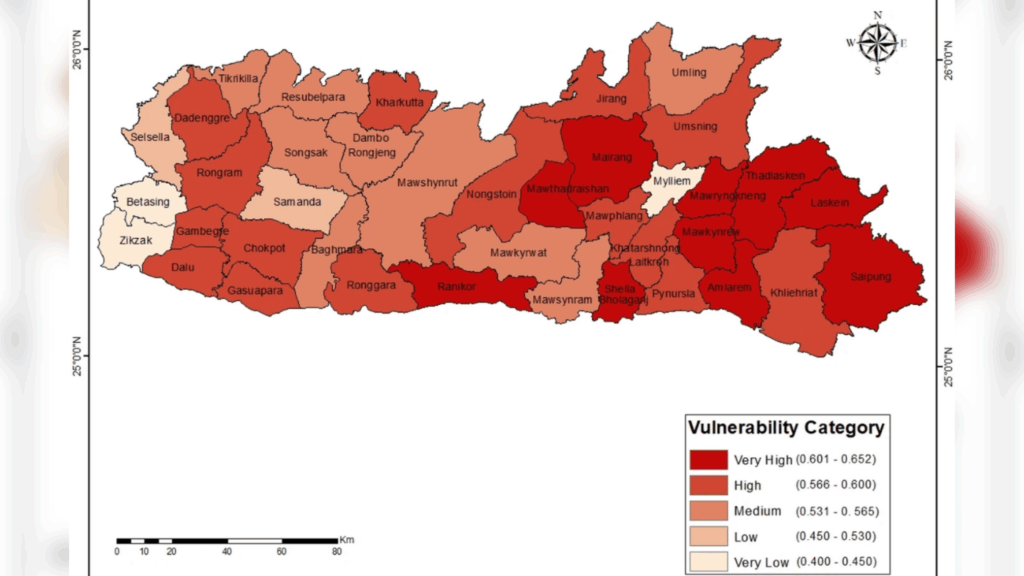Shillong, July 18 : A groundbreaking assessment conducted by researchers at the Meghalaya Climate Change Centre (MCCC) has shed light on the comprehensive climate vulnerabilities across the state’s then 39 Community & Rural Development (C&RD) Blocks. The study, titled “Integrated climate vulnerability assessment of Meghalaya at block level,” has been published as a research article in Discover Sustainability, a journal by the Europe-based Springer Nature Group.
The assessment reveals that 25 C&RD Blocks in Meghalaya fall into the “very high” and “high” vulnerability categories. Key contributing factors identified include limited access to credit, low household incomes, inadequate public health infrastructure such as Anganwadi centres, and low forest resource availability.
This detailed block-level analysis offers actionable insights for policymakers, particularly those involved in climate resilience, rural development, and socio-economic equity initiatives within Meghalaya. The findings are crucial because they pinpoint local vulnerabilities that often go unnoticed in broader district-level studies, enabling the development of precise, location-specific adaptation and mitigation interventions.
The Meghalaya Climate Change Centre, established under the National Mission for Sustaining the Himalayan Ecosystem (NMSHE) of the Department of Science & Technology, Government of India, operates under the Planning, IP&SD Department, Government of Meghalaya. It functions as a technical unit for the Meghalaya Basin Development Authority, which serves as the Secretariat to the Meghalaya State Council on Climate Change & Sustainable Development. The MCCC is supervised by Dr. Joram Beda, IAS, Commissioner & Secretary (II), Planning, IP&SD Department, Government of Meghalaya.








